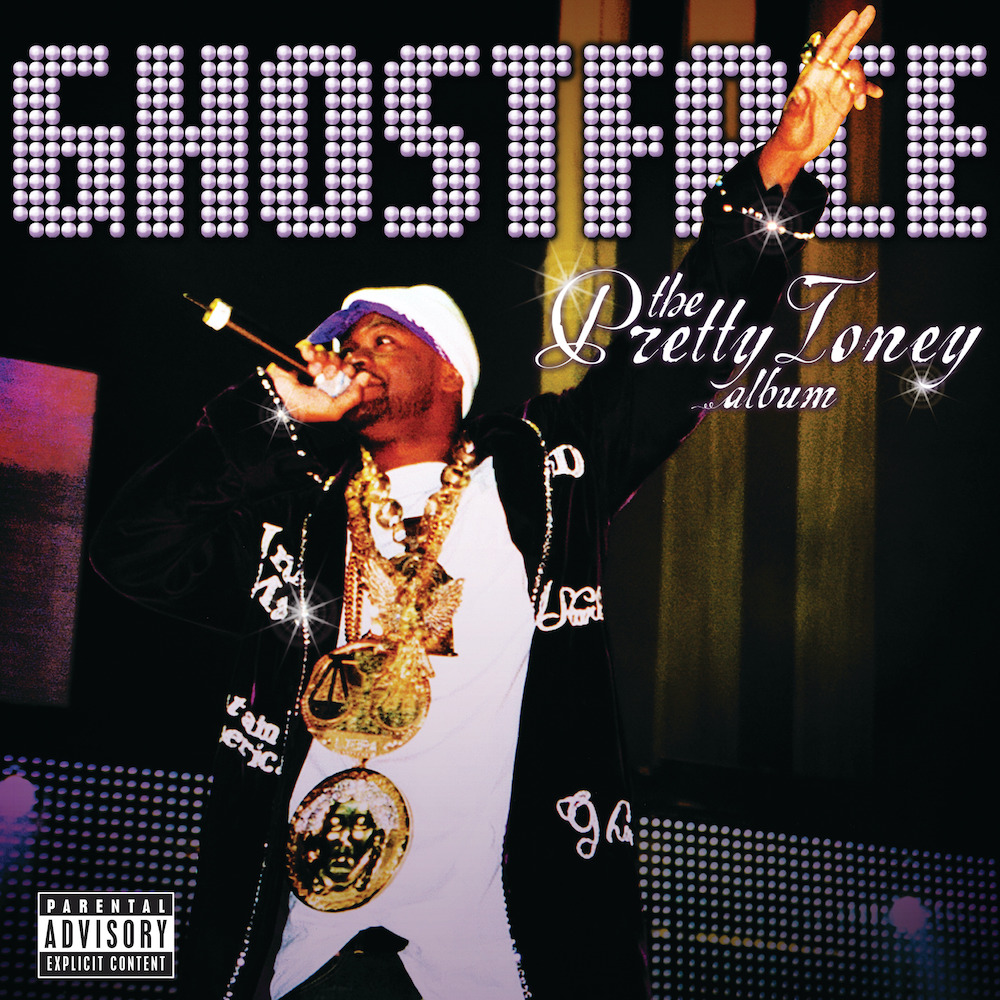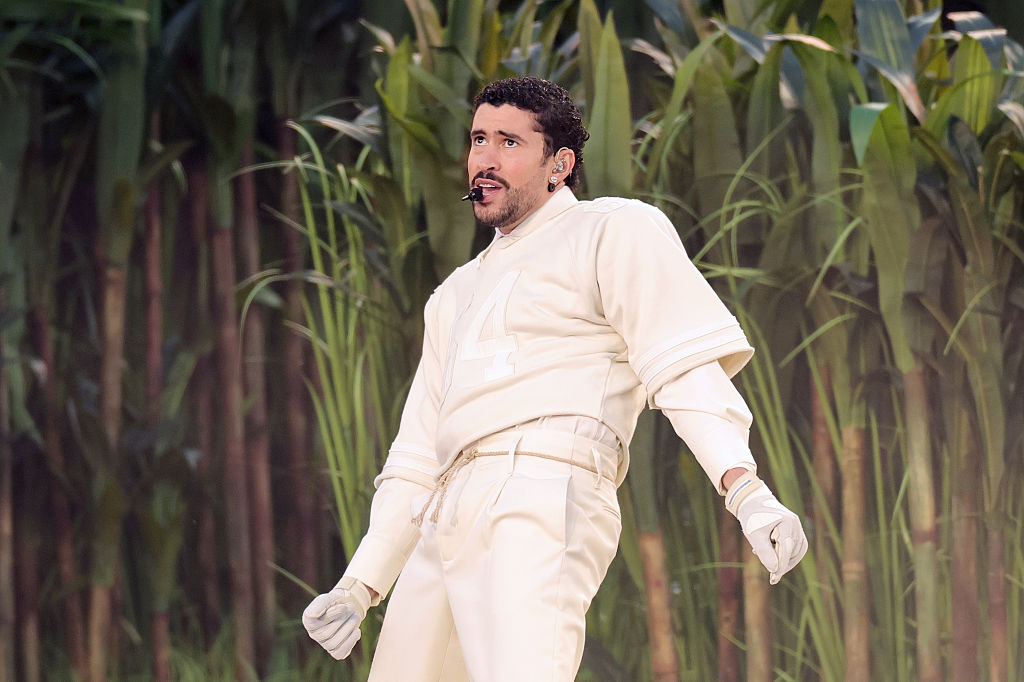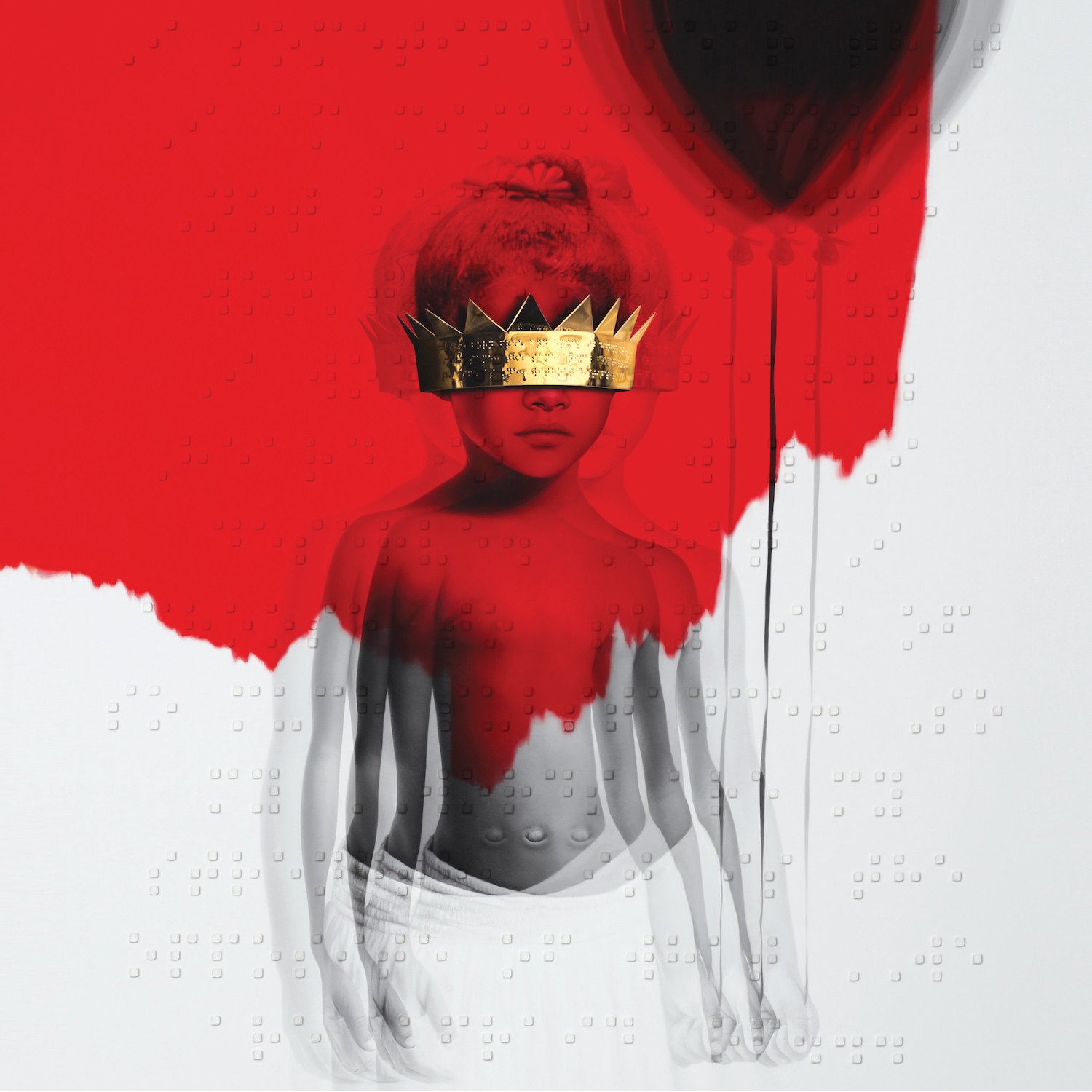- Def Jam
- 2004
It's November 2003, and Jay-Z is retiring. That's the idea, anyway. He's making a whole spectacle out of it. At Madison Square Garden, Jay is playing an all-star farewell show, opening things up with a Michael Buffer ring introduction as his fake jersey ascends into the real rafters. Halfway through the show, Jay cedes the stage to Beyoncé, his then-girlfriend and now-wife, giving himself time to change into a fresh new suit. A camera crew captures everything so that it can be immortalized as a feature film. While Beyoncé sings "Baby Boy," her massive Sean Paul-assisted hit, the filmmakers' attention drifts to backstage hallway, where the camera finds Ghostface Killah.
In that hallway, Ghostface is decked out in a purple bathrobe and seemingly not that impressed by all the pageantry around him. He announces his plans for the evening: "She got like three songs, so she gon' let me come in on the third one. You know, I'ma just do my part and get off the stage, I guess. Go back to the joint, go take a shit, go to sleep, nah mean?" Ghost is in that hallway because he's about to rap his verse from the remix to "Summertime," a now-forgotten Beyoncé single from the now-forgotten soundtrack to the now-forgotten movie The Fighting Temptations. Just before Ghost takes the stage, though, he comes across old-school legend Slick Rick, and Slick Rick has a big bag of gold jewelry.
Slick Rick reaches into his bag and pulls out giant gold medallion after giant gold medallion, draping them all over Ghostface's neck like it's a knighting ceremony. A nearby handler warns Ghost not to trip off the stage. It's a real concern. With the weight of all that jewelry, most of us could probably barely stand, and if Ghost tips over into that crowd, those necklaces are unlikely to find their way back to their rightful owner. Ghost was already wearing a ton of jewelry before all that, and now he's a human Christmas tree, his gaudy opulence reaching surreal levels. But he's still Ghost, still the guy who's going back home to take a shit after he leaves the stage. The crowd wakes up when Ghost makes his entrance, and he radiates delight, beaming in Beyoncé's direction and attempting his own atonal versions of her high notes. He is a vision.
If you weren't at Madison Square Garden that night, Ghostface Killah's appearance in Jay-Z's Fade To Black concert film was a true surprise. Jay-Z and Ghostface never had much to do with each other. Unless I'm forgetting something, they've never appeared on a song together. Even in the mid-'90s, when both rappers were ascending to stardom, they represented different ideas of what New York rap could and should be. Jay was a smooth, emotionaless hustler. Ghost was a rough, emotional capital-A artist. There have been weird moments of crossover -- Just Blaze later claimed that Ghostface was originally supposed to get the beat for Jay's hit "Girls, Girls, Girls" -- but they operated in separate worlds.
Six months after that Garden party, though, the image of Ghostface on that stage adorned a brand new album, Ghost's debut for the label that Jay-Z supposedly retired to run. The cover art was mocked up to resemble The World's Greatest Entertainer, the 1988 album from Slick Rick's old partner Doug E. Fresh. Nostalgia was real, but Ghost was in unexplored territory. The Wu-Tang Clan, the group that introduced Ghost to the world, was fractured and largely inactive. Their past two group albums were cult successes but not commercial juggernauts. For a minute, it looked like Ghost was carrying his crew's fortunes on his back. Supreme Clientele, Ghost's surreal brain-clouded masterpiece, was an unlikely semi-hit, going gold in a moment when Wu-Tang really needed a win. But Ghost's 2001 follow-up Bulletproof Wallets never found an audience, and the rapper soon parted ways with Epic, the label that had released his first three solo albums. He needed a new home, and Def Jam was it.
The early '00s were the last time that New York hardhead music had any real claim to mainstream-rap centrality. Jay-Z and 50 Cent were arguably the genre's biggest stars, and Def Jam had a roster full of firebreathers. In the beautifully insane 2003 video game Def Jam Vendetta, you could play as many of those rappers, powerbombing and suplexing your labelmates. In the game, you could see the future that the label envisioned for itself: DMX, Method Man, Redman, Capone-N-Noreaga, Joe Budden, and Funkmaster Flex all crunching each other's necks. In the game, Ghostface Killah fought in sweats, Timberlands, a golden sun medallion, and a golden eagle gauntlet. He looked magnificent.
The Pretty Toney Album, Ghostface Killah's Def Jam debut, came out in an all-too-brief window when Def Jam thought maybe it could turn Ghost into a mainstream rap star. (Saturday is the 20th anniversary of the album's release, and no, I still don't understand why Ghost spelled "Toney" like that.) Perhaps because of label pressure, Ghost temporarily dropped the "Killah" from his name, becoming simply "Ghostface," as if that was what was holding him back commercially. The album has no guest verses from any of Ghost's Wu-Tang comrades, and his old collaborator the RZA only has a couple of tracks. You can hear Def Jam throwing shit at the wall and seeing if it'll stick -- pairing Ghostface up with members of the Lox, with Missy Elliott, with Florida sex-rapper Jacki-O, with neo-soul singer Musiq Soulchild.
Those efforts failed. The Pretty Toney Album outsold Bulletproof Wallets, but Ghostface wasn't touching his new Def Jam labelmate Kanye West. For that matter, Pretty Toney didn't sell as much as the 2004 Def Jam records from the Young Gunz, Patti LaBelle, Method Man, LL Cool J, or Shawnna, either. Ghostface Killah was all rough edges. He could not be smoothed out. But those rough edges could still make for beautiful music, and against all odds, The Pretty Toney Album is one of Ghostface's best. With the non-superstar major-label rap albums of the early '00s, it's always hard to tell which decisions are artistic vision and which are label calculation, but Ghost's voice shines through on every moment of Pretty Toney.
This is a reach, but you could almost make the case that The Pretty Toney Album is Ghostface Killah's first true solo LP. Ghost's first three albums are all wildly idiosyncratic, but they all had to exist within the greater context of the Wu-Tang cosmology. Pretty Toney, on the other hand, represents Ghost's best attempt to carve out his own sonic identity. Ghost was able to do what he really wanted, and what he really wanted was to rap over orchestral, tear-stained Vietnam-era soul records. Producers flip tracks from David Ruffin, David Porter, Billy Stewart, Sam & Dave, the Emotions. On the Ghostface-produced album highlight "Holla," Ghost raps in melodious sob-wracked verses over the Delfonics' 1967 classic "La-La (Means I Love You)." It's not a sample of the Delfonics track. It's the whole song, falsetto vocals and all. Nobody else could or would try anything like that.
The Pretty Toney Album is the full Ghostface Killah experience. It's breathlessly bloody crime stories, narrated with concrete cinematic detail and feverish urgency. It's professions of flawed, fucked-up love. It's twisted and singular wordplay, paired with boasts so vivid and strange ("I feed dolphins!") that they could only ever come from one person. It's gun-bar threats so specific and gruesome that they can be bone-chilling: "Forensic scientists called in to display graphics for square inch to his back winds/ They brain and spleen is left all over a fiend's mattress."
Even the compromises don't really sound like compromises, especially today. Take lead single "Tush," which drew heavy eyerolls when it first came out. Yes, Ghost and Def Jam were unabashedly hit-chasing. No, the chemistry between Ghost and Missy Elliott does not crackle. Still, we get Ghostface rapping over triumphant horns and squelchy guitars, finding his own pockets in the beat. And even when he's doing what should be a relatively pedestrian for-the-ladies sex song, Ghost gets into the sweaty and sometimes-embarrassing mechanics of actual sex: "Take it out, turn around/ Charlie horse, shit, threw me off balance." Only Ghostface would drop the image of mid-fuck muscle cramps into his play for radio rotation.
All through The Pretty Toney Album, Ghostface is clearly the dominant voice, the one in control. Whoever's producing -- No ID, Nottz, longtime Wu-Tang affiliate True Master, Lords Of The Underground collaborator K-Def -- Ghost gets the rich, pillowy soul tracks that he loves. He uses them to rap with wild, bugged-out passion, throwing himself into every syllable. And when Ghost does re-team with the RZA, amazing things happen. One of the two RZA-produced tracks on Pretty Toney, the minute-long workout "Kunta Fly Shit," is really more of a sketch, but it's a great one -- a bent-up rumble that radiates oblique menace. The other RZA track on there is "Run," and that's one of the best songs of the 21st century.
You will never hear a cinematic, adrenaline-charged banger more perfect than "Run." It's pure chaos -- sirens, gunshots, horn-blasts, tumbling drums, Ghostface's treble-choked voice at its most urgently pitched-up. Guest-rapper Jadakiss remains as composed as ever, but even he might have to take his shirt off when he hears the beat. (Comp, a Baltimore rapper who was on Def Jam just long enough to get his likeness into Def Jam Vendetta, is on the video version of "Run" but not on the album. He kills it, too.)
"Run" is presented as the internal monologue of someone who's forced into sudden motion because he knows the police are after him. He doesn't know why they're chasing him, and he doesn't stop for long enough to question it. The police are a constant threat, and even if they don't get him for something that he actually did, they might just make something up. It's a do-or-die scenario, and you hear the fear and anger and confusion just bursting off of the track. Ghost: "They amp shit! Plant shit! Destroy evidence! Fuck a case! I'm not coming home when I'm 56!" Jada: "Scared to death, running like I got bears on me! My Timbs start feeling like they Nike Airs on me!" Hop fences. Jump over benches. When you see them coming, get the fuck out the entrance.
"Run" was never going to be a proper hit, but it still has that feeling to it. These days, a song like MOP's "Ante Up" almost works as a safe public domain signifier -- a readymade soundtrack for a scene in a Ninja Turtles movie. "Run" deserves that kind of classic status, but it can't fade into the background. It's too much. It's an experience unto itself. Maybe a year after the release of The Pretty Toney Album, I saw Ghostface play a gorgeously chaotic set at the BB King Blues Club in Times Square, and it's still one of the best shows I've ever seen in my life. When "Run" rang out, Ghost and his Theodore Unit proteges sprinted in rings around the stage -- a readymade onstage circle pit for a song that demands that sense of immediate physical danger.
Twenty years later, "Run" has not aged one second. The Pretty Toney album still glitters like a diamond, and part of the reason might be the way that it's evaded tiresome canonical-status conversations. Ironman and Supreme Clientele are important albums in rap history, and they deserve to be remembered like that. The Pretty Toney Album is just a great record from a great rapper. It was supposed to do big things in the world, and it never did, but it can still make you feel things when it plays.
Ghostface Killah found a safe home on Def Jam for a while. He released five more albums on the label, including one more classic. Commercially, none of them really hit. Artistically, all of them had moments. Today, Ghostface Killah has secured full-on legend status, and the world still stops when he shows up on a Kendrick Lamar record. The Pretty Toney Album is a snapshot of a time before the hip-hop-turns-50 celebrations and the nostalgia package tours, when things were still at stake. Ghost put all those chains on, rode into battle, and did his best to capture the moment. He failed, but his failure was glorious.
We rely on reader subscriptions to deliver articles like the one you're reading. Become a member and help support independent media!






